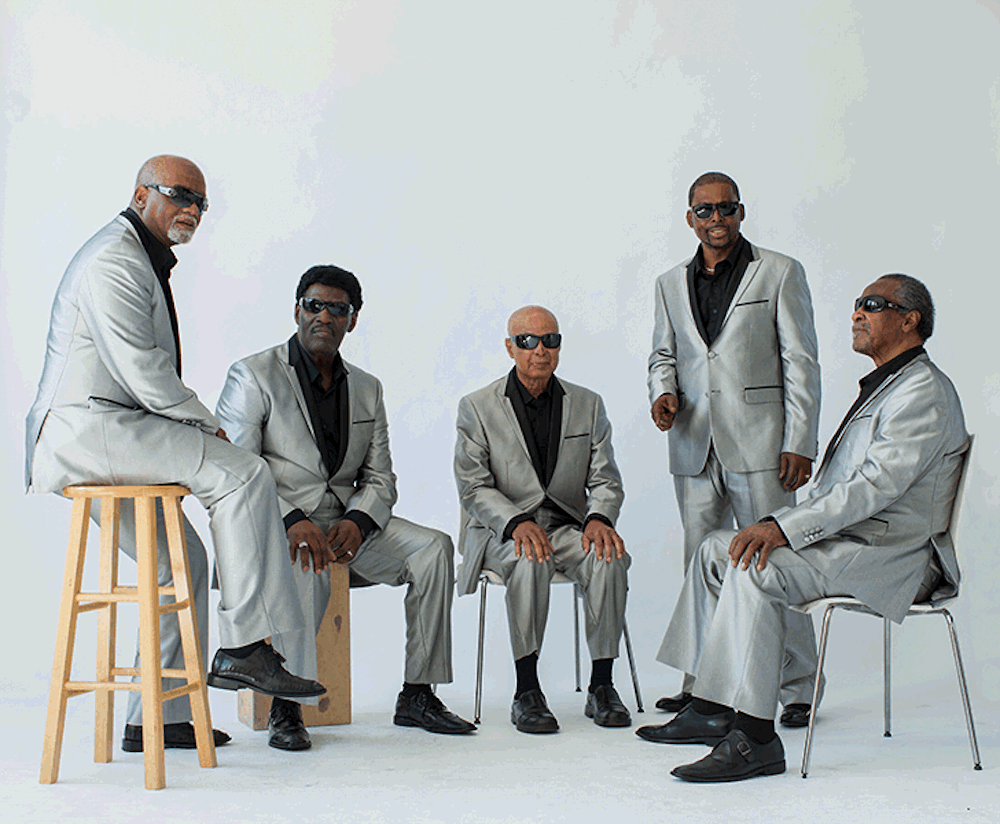The Blind Boys of Alabama first formed at the Alabama Institute for the Blind in 1944. For reference, other “legacy” groups such as the Texas Tornados, ZZ Top and even the Rolling Stones have been together continuously for 25, 45 and 50 years, respectively. At 72 years and counting, the Blind Boys have been around longer than hip-hop, soul, rock n’ roll and the host of other styles their gospel sound helped to inspire. Few can compare with their legacy either: touring the big-tent revivals of the ’50s, performing at benefits for Martin Luther King in the ’60s, and most recently performing for President Obama at the White House.
That 70+ year run has come with plenty of change for the band. Only one of the original Blind Boys, Clarence Fountain, who started the group with four other nine-year-old classmates at the Talladega, Alabama school, continues to tour with the group today. What has remained solid is the group’s sound – unapologetic gospel – and their driving goal to “spiritually uplift audiences.”
“We’ve always been the kind of group that doesn’t get away from what we are doing,” says Blind Boys’ singer and longtime manager Eric “Ricky” McKinnie. “We’re in a gospel group, we can draw all men with our sound, people have come from all walks of life, from all working backgrounds.”
McKinnie has been with the Blind Boys for 26 years, which still makes him the new guy as far as the group is concerned. Those years, however, have marked a huge transition for the Blind Boys. After spending the majority of their career performing on the gospel circuit of mostly Black Baptist churches, the band began reaching out to new audiences through a number of fruitful collaborations: working with Booker T on 1992’s Deep River, performing the role of Oedipus on Broadway in “The Gospel at Colonus,” and netting their first Grammy win in 2001. If the transition from sanctuary to stage seems like a big change, the Blind Boys don’t seem to see anything different in performing for spiritual or secular audiences.
“We don’t preach to the people, we sing to the people,” explains McKinnie. “Music is universal. We try to give them a music to relate to. When we sing, the lyrics are right, everything just comes together.”
Lately the Blind Boys have made it a mission to relate their gospel sound with a range of different styles, covering songs by Curtis Mayfield, Prince and Stevie Wonder on 2002’s Higher Ground, taking on the classic country songbook with 2011’s Take the High Road, and recruiting Bon Iver’s Justin Vernon to produce on 2013’s I’ll Find a Way. In spite of, or perhaps because of, these stylistic departures, their devotion to the gospel style has deepened, often by accentuating the gospel roots of whatever style they choose to take on.
As for future collaborations, McKinnie notes that the door is always open. Even then, the Blind Boys have a few dream collaborations in mind. “If we could go on tour with Stevie Wonder, we’d have a lot of fun with that,” he muses. “We’d also love to do a country tour with someone like Willie Nelson. That or a real contemporary artist, like Taylor Swift, who would take it to a younger audience.”
This Thursday’s show will feature the Blind Boys and the gospel sound that has carried them for so long. “You can expect to hear the best in music, some songs you do know, some you may learn to sing,” says McKinnie. “Tell everyone down in Texas that the Blind Boys are coming to town.”


